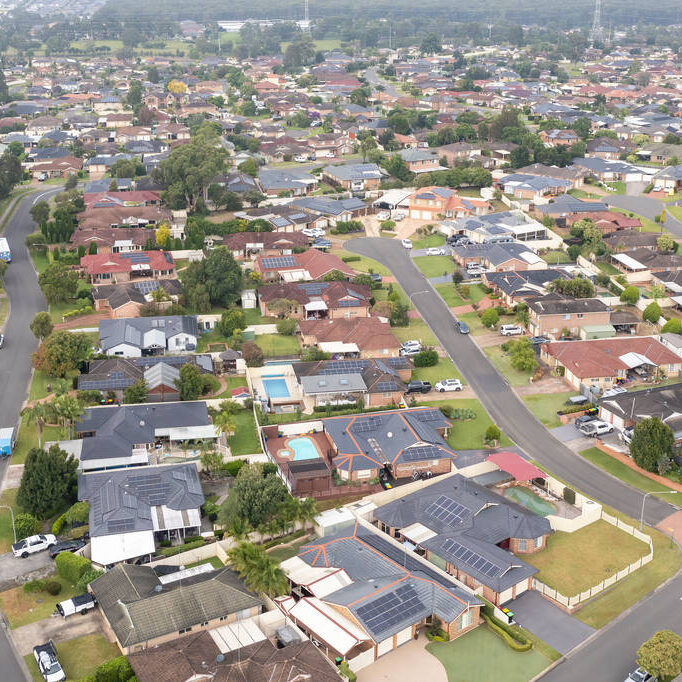You may be chasing more affordable prices, dreaming of a lifestyle change, or spotting investment potential in a different market altogether. No matter the reason, buying property in another state can be pretty tempting. But let’s be clear: buying interstate isn’t quite the same as finding a place down the road. You may have to […]
LVR: The Secret Hack to Refinancing Your Home Loan
Refinancing your home loan can be a smart way to lower your repayments, shorten your loan term or turn equity into cash—but it can be tricky. For instance, you must avoid the home loan hostage trap and scour various mortgage deals to find the best option. However, since the primary reason to refinance is to save money, there’s a secret hack that can help you out. Enter the loan-to-value ratio (LVR). If you want to save a lot of money while refinancing your mortgage, you must learn what LVR is and how it can assist you—and that’s exactly what we’ll discuss below.
What is LVR in a Home Loan?
At its core, the Loan-to-Value Ratio (LVR) is a measure that compares the amount you’ve borrowed for your home loan to the total value of your property. Lenders calculate it by dividing the loan amount by the home’s value and multiplying it by 100 to get a percentage. For example, if you’re borrowing $400,000 to purchase a property valued at $500,000, your LVR would be 80% ($400,000 / $500,000 x 100). This ratio can directly influence the loan terms, including the interest rate and the need for Lender’s Mortgage Insurance (LMI). Do you plan to refinance your mortgage anytime soon? Your current LVR can also be a factor in play.
Why LVR Matters in Refinancing
When you first applied for a home loan, your LVR was determined based on the amount of your home deposit. The typical size of a home deposit is 20% of the property’s value, enabling you to own a portion of the property from the outset. If you could afford a 20% deposit, your LVR would be 80%. The first 20% of the home value was already covered by your deposit, while the remainder was funded by the loan. A smaller deposit, such as 10%, would result in a higher LVR of 90%, while a larger deposit of 40% would give you a lower LVR of 60%, and so on.
As time progresses, two significant factors can work in your favour: the reduction of your loan balance through repayments and the potential increase in your property’s value. Australian capital cities have seen a consistent rise in home values, with a reported +0.9% increase in the national home value index in the past few months. This combination can significantly improve your LVR, positioning you advantageously for refinancing. However, if your LVR is high, you may face challenges in refinancing or be required to pay LMI again, which can diminish refinancing’s financial benefits.
The Benefits of a Low LVR When Refinancing
Lower Interest Rates
A low LVR is often rewarded with lower interest rates by lenders. This is because a lower LVR reduces the lender’s risk, as it indicates that the borrower has more equity in their property and is borrowing less in relation to their property’s value. Generally, lenders may offer top-rate discounts to potential customers with LVRs as low as 60%.
Avoidance of Lenders Mortgage Insurance (LMI)
As mentioned, LVR is usually required for loans with an LVR above 80%. It helps protect the lender in case of loan default, and not having to pay it can significantly reduce the overall cost of borrowing or refinancing your home loan.
Access to More Loan Options and Features
Lenders often consider borrowers with a lower LVR low-risk. That can unlock access to loans with more attractive terms, including features such as offset accounts, redraw facilities, and the flexibility to make extra repayments without incurring fees.
Increased Negotiating Power
You can use a low LVR as a powerful bargaining chip when negotiating with lenders. It’s strong proof that you are a lower-risk borrower, which can put you in a stronger position to negotiate lower interest rates or better loan terms during refinancing.
Potential for Equity Access
Refinancing with a low LVR may also allow you to access the equity built up in your property. You can turn this equity into cash to fund home renovations, consolidate debts or purchase an investment property. Just make sure it is done wisely and does not significantly increase the risk of the refinanced loan.

How to Lower Your LVR Before Refinancing
Lowering your LVR before refinancing can significantly improve the terms of your new home loan. Here are some tips to do so:
- Make Extra Repayments on Your Current Loan: Paying down your current home loan can directly reduce your LVR by decreasing the loan amount relative to your home value. So, consider making extra repayments, even in small amounts, if your current loan term allows you to do so. Aim for an LVR lower than 80% to avoid LMI and get better interest rates upon refinancing.
- Boost Your Property’s Value: Renovations or updates can increase your property’s appraisal value, thereby lowering your LVR. Even minor improvements, such as landscaping or interior updates, can have a significant impact on your property’s market value. Remember, the higher your property’s value relative to your loan amount, the lower your LVR.
- Use Savings to Reduce the Loan Balance: If you have savings set aside, consider using a portion to pay down your loan balance before refinancing. This direct reduction in your loan amount can lower your LVR. While it’s a straightforward strategy, it requires meticulous consideration of your overall financial situation and emergency fund needs.
- Consider a Professional Valuation: Do you believe your home value has increased due to market conditions or improvements you’ve made? Get a professional valuation to document this increase officially. Be aware that lenders will require a property valuation during the refinancing process, but having an idea of your property’s worth before it can guide your decisions.
Talk to a Mortgage Broker Today
To sum it up, understanding and managing your LVR is crucial when considering refinancing your home loan. More importantly, aiming for a lower LVR can put you in a better negotiating position and help you reap the full benefits of refinancing.Want to get your refinancing journey off to a good start? Contact us and talk to one of our mortgage brokers in Hobart today. We can help you understand how to best leverage your LVR for refinancing and provide insights into which lenders are most likely to offer favourable terms based on your LVR. Furthermore, we can assist with the refinancing application process, helping you get the best deal possible.
Enquire Now
Find Your Perfect Finance Solution
Let's discuss your finance needs. We’re here to help.
More posts from Deltos Finance

Suburbs with the Highest Rental Yield in Tasmania
The term “rental yield” is music to any property investor’s ears. It’s the key metric that indicates the annual return on your investment, essentially the percentage of the property’s value that comes back to you in rental income. In a market like Tasmania, which has been gaining traction for its overall investment appeal, pinpointing the […]

Launceston: A ‘Second Wind’ Property Market You Should Invest in Now
When talk turns to Tasmania’s property scene, it’s easy for the spotlight to shine brightly on Hobart, with its bustling waterfront and historic charm. But just a little further north, nestled at the head of the picturesque Tamar Valley, lies Launceston—a city that quietly hits its stride and presents a compelling proposition for savvy property […]

How Often Does Property Double in Value?
Every homeowner has likely dreamed of their property doubling in value in the future, turning into a valuable nest egg or funding their next big adventure. But how long does it actually take for a property to double in value? And how often does it happen? While there’s no magic eight-ball to predict the property […]

Stamp Duty Exemption for First-Home Buyers in Tasmania: Has It Paid Off?
Purchasing a property has historically come with major financial difficulties, especially for first-home buyers in Tasmania or any other state for that matter. The stamp duty is one of those most notable monetary challenges for homebuyers. Essentially, it’s a tax levied on property purchases that often adds tens of thousands of dollars to upfront costs. […]

Difference Between Airbnb and Traditional Renting in Hobart
Hobart’s property market has become a hotspot for investors largely because of its strong tourism demand and stable rental market. But that doesn’t mean all property investments in this Tasmania capital are a sure win. One factor to consider is deciding between short-term rentals like Airbnb and traditional long-term renting. Each option has distinct advantages […]

Is Launceston a Good Place to Live?
The short answer is yes, especially if you want a more affordable lifestyle without giving up access to key services, natural beauty, and long-term opportunities. Also, with its blend of heritage charm, steady economic growth, and a property market still within reach for many Australians, Launceston, Tasmania, is gaining momentum as a popular area for […]

Hobart Property Management Fees: A Complete Guide
You’ve already secured an investment loan and finalised your rental property purchase in Hobart. Now, it’s time to take action by listing the property for rent and managing it effectively to start generating rental income. But how much should you expect to spend on property management in Hobart, Tasmania? As Tasmania’s capital continues to attract […]

How Rising Property Prices Affect Your Home Loan and Buying Potential
Here’s the good news: the Australian real estate market has been experiencing significant growth in recent years, with house prices in major cities reaching record highs. It can be a huge win for homeowners and investors, especially those planning to sell their properties soon. However, this can be an issue for potential property buyers, including […]

Build Your Wealth with a Simple Guide to Using Your Home Equity
Building wealth requires adopting the right mindset and being strategic when using available financial instruments. Essentially, it’s about making your money work in your favour. But what if you don’t have enough cash to start creating wealth? There’s an underutilised strategy that we want to share with you, and that is leveraging your home’s equity—the […]


